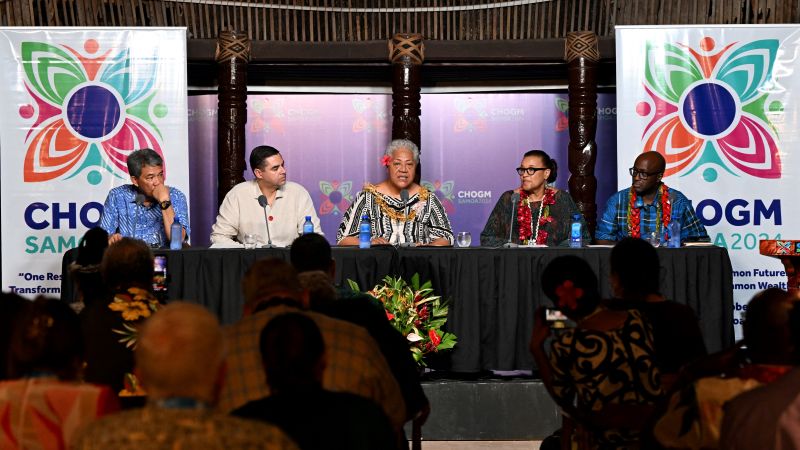
Commonwealth Leaders Call for Action: It’s Time to Discuss UK Slavery Reparations
Discussing Reparations for Slavery: A Step Towards Healing and Reconciliation
The issue of reparations for historical injustices, particularly the transatlantic slave trade, continues to be a contentious topic that elicits strong emotions and diverse opinions. In recent years, there has been a renewed call for addressing the legacy of slavery and colonialism through reparations, and this sentiment has been echoed by Commonwealth leaders as they emphasize the importance of having an open dialogue on this complex issue.
The transatlantic slave trade, which forcibly transported millions of Africans to the Americas to toil under brutal conditions, has had far-reaching consequences that continue to impact individuals and societies today. The legacy of slavery is evident in widespread systemic inequalities, economic disparities, and social injustices that persist in many countries. As such, the question of reparations is not merely a historical or theoretical exercise but a practical and moral imperative to address past wrongs and work towards a more just and equitable future.
Reparations can take various forms, including apologies, financial restitution, educational initiatives, and community development programs. While some argue that reparations are necessary to acknowledge the suffering and injustice endured by enslaved individuals and their descendants, others question the feasibility and effectiveness of such measures. However, the acknowledgment of historical injustices and the commitment to redress these wrongs are essential steps towards healing and reconciliation.
By engaging in discussions on reparations, Commonwealth leaders are signaling a willingness to confront uncomfortable truths and work towards a more inclusive and equitable society. These conversations provide an opportunity for countries to examine their shared history, acknowledge the harm caused by slavery and colonialism, and explore ways to address the lasting impact of these injustices on marginalized communities.
Moreover, reparations can serve as a symbolic gesture of accountability and a means to promote healing and reconciliation among affected individuals and communities. By acknowledging the past and taking concrete steps to right historical wrongs, societies can begin the process of building a more just and equitable future for all its members.
While the issue of reparations may be complex and challenging, it is a necessary conversation that must be had to address the enduring legacy of slavery and colonialism. Through open dialogue, empathy, and a commitment to justice, Commonwealth leaders and nations can move towards a more inclusive and equitable society where the wounds of the past are acknowledged, and steps are taken towards healing and reconciliation.
